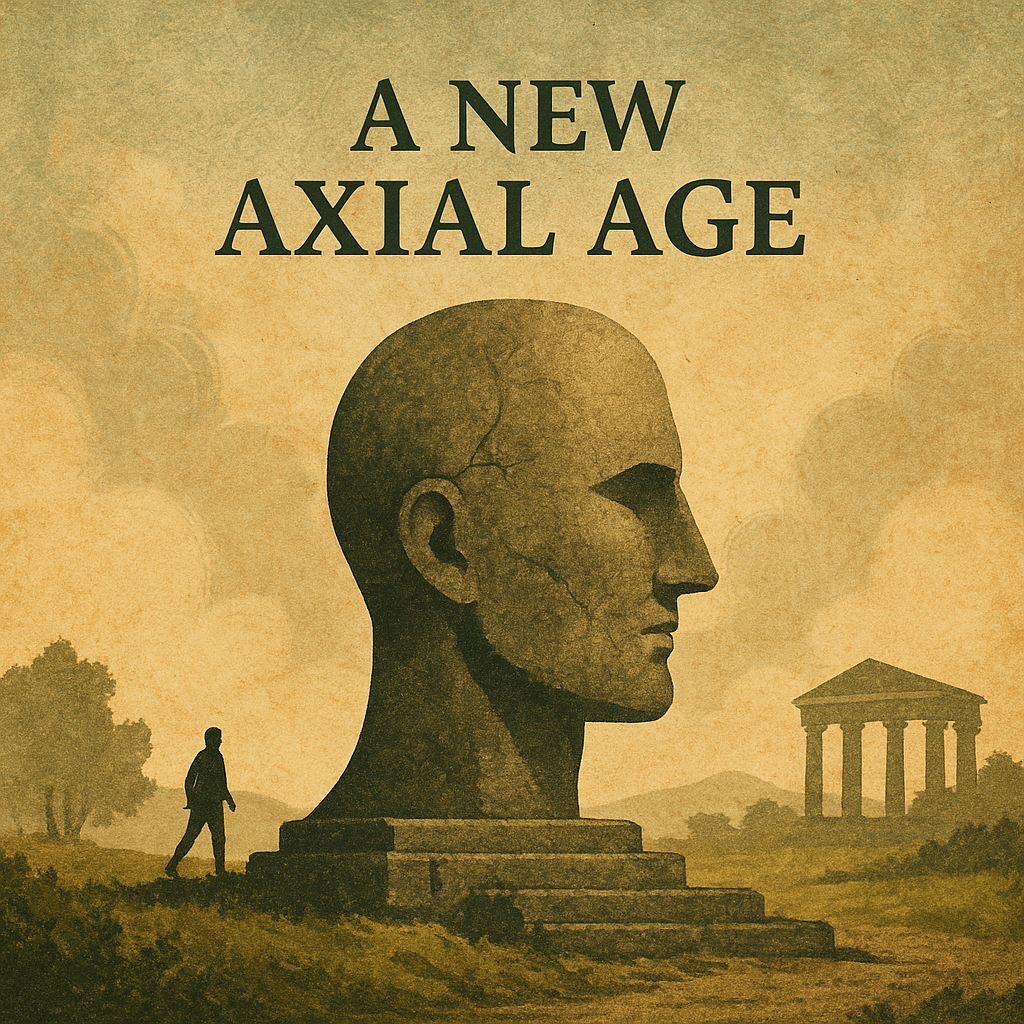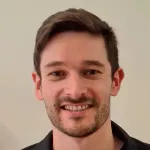There are moments in history when the human spirit shifts.
Between 800 and 200 BCE, across scattered cultures, something changed. Socrates asked what it meant to live a good life. The Buddha spoke of liberation from suffering. The Hebrew prophets preached justice over sacrifice. Confucius framed the ethics of civilisation. Laozi whispered of the Tao.
This was the First Axial Age — a global awakening.
Before it, human life was largely shaped by myth, tribal ritual, and inherited structures. But during this axial moment, a new kind of reflection emerged. People began to ask not just what is, but what should be.
It was a turning away from blind obedience toward reasoned morality.
From instinct toward ethics.
From mystery toward meaning.
We became interior beings shaped not only by what happened to us, but by what we believed, and who we chose to become.
Today, we stand at the edge of another turning.
This time, it does not feel like awakening it feels like collapse.
Our structures are fraying. Our attention is fractured.
We are surrounded by answers yet none that seem to satisfy.
The world is mapped, measured, decoded.
We know how atoms work. We know what the brain does under a scan.
But we don’t know how to live well — not really.
Not together. Not with meaning. Not in peace.
The question is not whether we have knowledge.
We have too much of it.
What we lack is orientation a common purpose, a shared light by which things shine.
As Nietzsche saw, the death of God did not just remove belief — it removed the source of value itself. Without a centre, we float. Without a shared sacred, we grasp. We worship productivity, novelty, power — but quietly, we starve.
In All Things Shining, Hubert Dreyfus and Sean Dorrance Kelly write of our “polytheism of moods” — a modern world in which no single meaning binds us, and no shared reverence holds us steady. We are flooded with choices, but we lack direction. What shines for one is irrelevant to another.
We are free — but lost.
This is why we need a Second Axial Age.
Not a return to old religion.
Not a new ideology, or a false unity.
But a turning toward something deeper:
- A way to live that integrates the rational mind with the wounded ego
- A culture that allows the soul to speak again quietly, honestly
- A framework that acknowledges not just information, but wisdom
- A shared space where some things can be called sacred again not in dogma, but in presence
This will not be built by force. It cannot be invented on Twitter or sold in a course.
But it can begin.
It begins when we stop asking, What can I do to optimise myself?
And start asking, What is worth giving myself to?
It begins when we notice that our freedom is exhausted and long for something that calls us to belong, not to consume.
It begins when we honour silence as deeply as insight.
When we stop chasing what glitters, and listen again for what shines.
In the absence of meaning, we don’t become free we become vulnerable.
When no greater structure or purpose holds us, we’re tempted to create our own often in the image of power, dominance, or self-interest. When there is no God, we do not always become humble we may try to become gods ourselves. And even in a secular frame, when no shared vision or higher ideal anchors us, we inflate the self to fill the void. We look not upward, but inward — and often downward.
In that vacuum, false prophets rise men (mostly) who embody appetite and ego, cloaked in the language of strength. They speak of freedom, but they mean indulgence. They speak of power, but they mean domination.This is not a new way forward it is the oldest path in the world: might makes right.
What we need is not a return to impulse, but a return to ordered life — not authoritarian, but ethical. Not rigid, but principled. Something closer to what Socrates called for in The Republic — a soul rightly ordered, a society that seeks the good, a life governed not by hunger or spectacle, but by reason, wisdom, and care for the whole.
This is the work of a Second Axial Age: not to unleash our will, but to educate it.
Not to crown the self, but to integrate it.
The First Axial Age taught us to think.
The Second must must teach us to be whole.
Not just smart. Not just free. Not just right.
But integrated. Oriented. Rooted in something larger than self.
This is the second turning.
And you are already standing at its edge.

